Like a lightning bolt, Jonah Lomu electrified the world of rugby — and then seemingly was gone in a flash.
“His life was Shakespearean in nature, full of triumph and disaster,” said Philip Smith, CEO of Great Southern Television, the production company behind a TV mini-series on rugby’s first global superstar, which aired on New Zealand’s Three channel in August.
Shown in the build-up to the 2019 Rugby World Cup in Japan, the two-parter – titled “Jonah” – focused on the rise of a national and international icon.
It also covered the hurdles the totemic wing faced in his personal life and his issues dealing with nephrotic syndrome, a serious kidney disorder. Lomu passed away shortly after the Rugby World Cup in 2015, aged 40, from a heart attack.
“When I was little, he was the big star in New Zealand, and I loved Jonah, I had posters of him up on my wall,” Japan captain Michael Leitch, who was born in New Zealand, told CNN earlier this year.
“I used to get haircuts like him. He was awesome. We’ve had no other player like him come through, I don’t think. So, you know, Jonah, he’s done so much for rugby in general.”
In researching the mini series, the documentary makers discovered a familiar strand throughout Lomu’s life.
“Everyone had a Jonah Lomu story,” scriptwriter Pip Hall reveals to CNN. “He was that kind of guy, that really connected with people.”
Stardom
Lomu first shot into the international sporting consciousness in 1995, at the Rugby World Cup in South Africa.
A devastating, powerful runner and a lethal finisher, the All Blacks wing became synonymous with the World Cup, despite never actually winning the tournament.
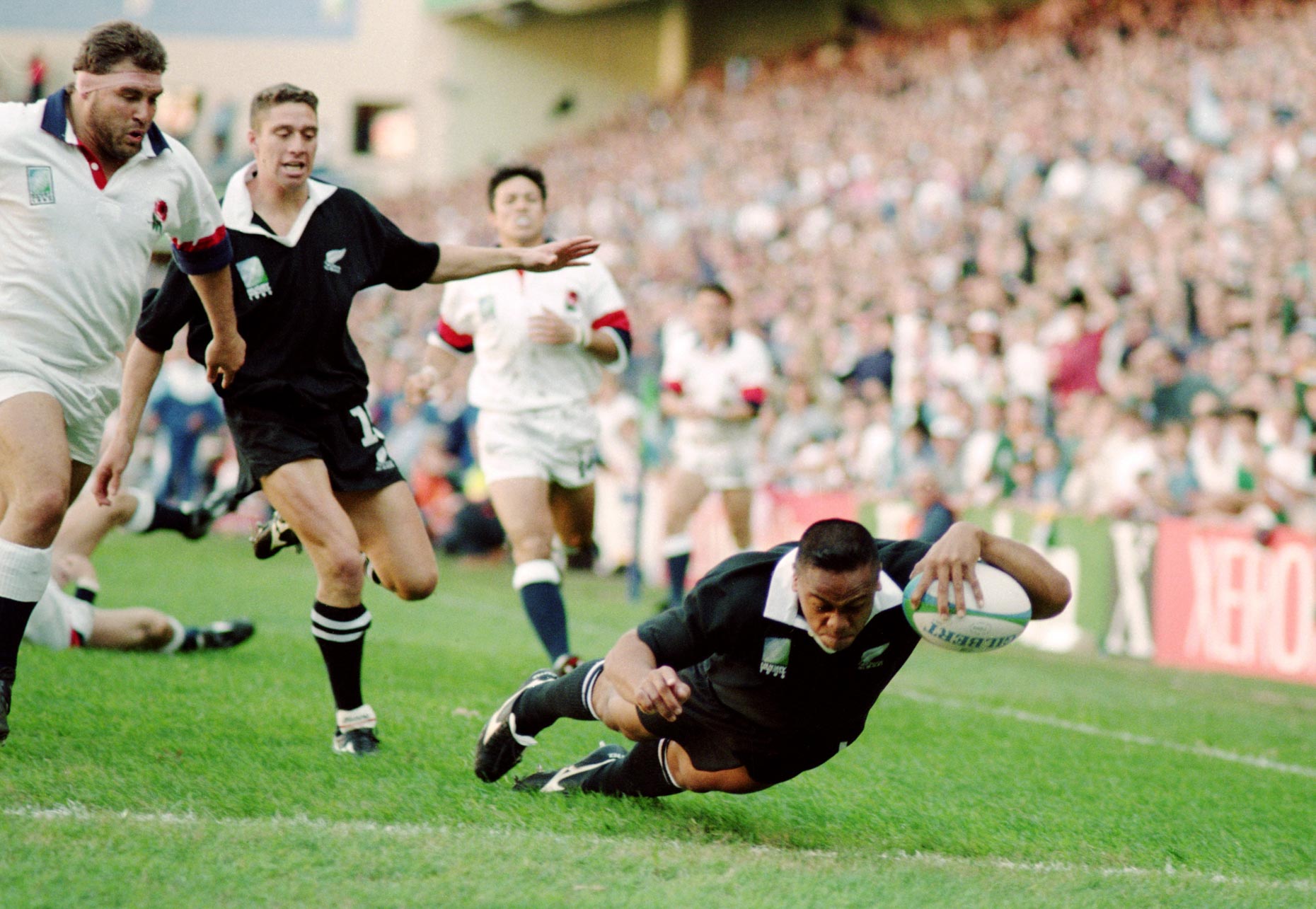
His team lost to the host in that ’95 final, but the sight of Lomu steamrolling would-be tacklers launched him into a level of stardom not yet seen in the then-amateur sport of rugby union.
What we could not know then was what would later be revealed by the man himself in his autobiography, “Jonah My Story,” in which he detailed the disruption in his young life.
After time spent living with an aunt and uncle in Tonga, he grew up mainly in a tough suburb of south Auckland with his mother and often violent, heavy-drinking father. Lomu opened up about his flirtations with gangs, and mother Hepi’s decision to send him to Auckland’s Wesley College in the hope of finding a better path for her son.
“Rugby is what it is now because of him -- his talent was recognised by everyone”
Lomu went on to become the face of a game, the ambassador for a global sport. This inevitably became taxing, and as we would discover in the later years of Lomu’s short life, finances would also be an issue.
In the aftermath of Lomu’s sudden passing in 2015, the New Zealand Rugby Players Association (NZRPA) set up the Jonah Lomu Legacy Trust to care for his two children.
As NZRPA chief executive Rob Nichol said at the time: “It appears that because of Jonah’s well-known generosity, he had taken on obligations, financial and otherwise, to support others at the expense of himself, (wife) Nadene and the children.
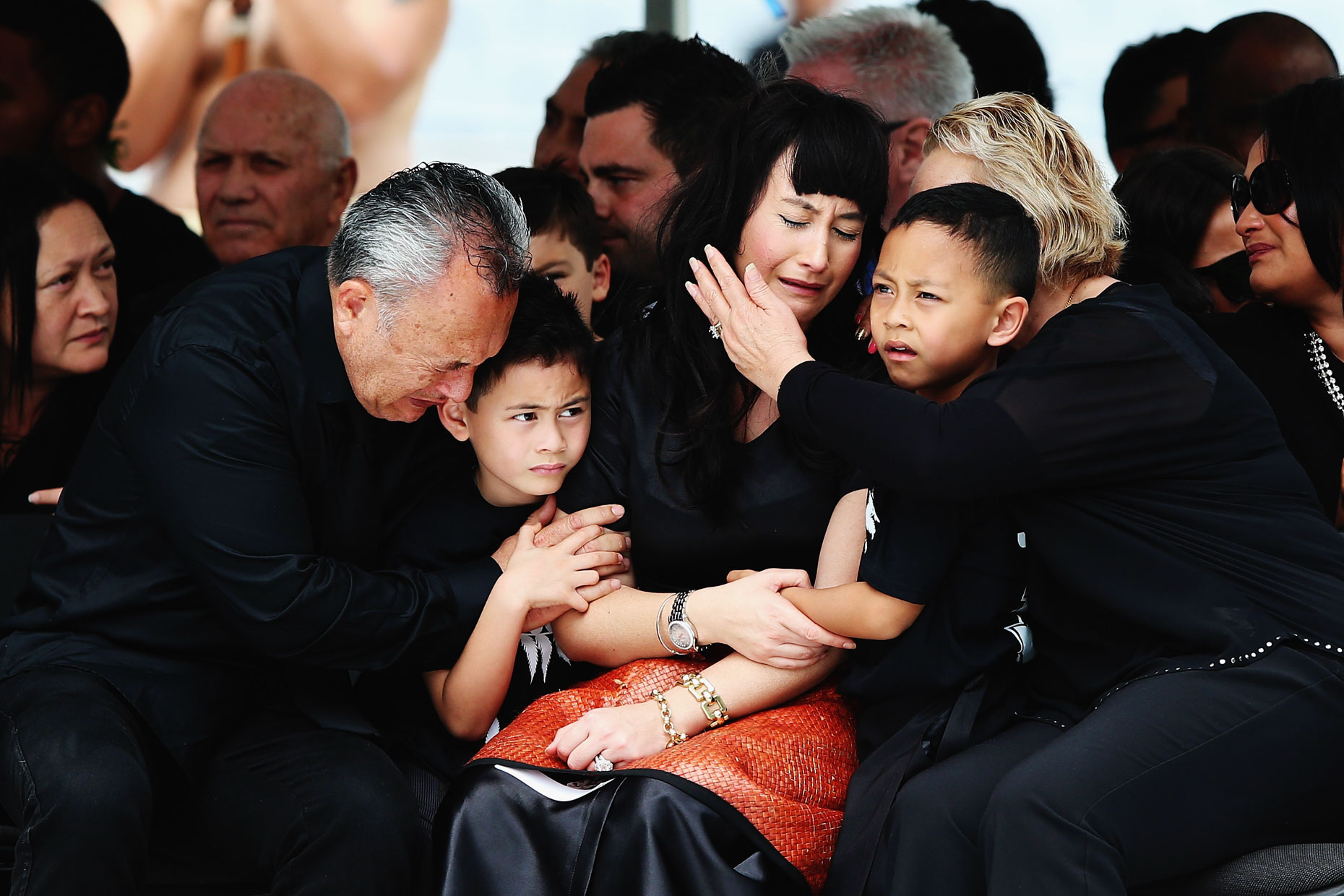
“It is also apparent that his 20-year illness and long dialysis sessions, multiple times a week, affected him far more than people realised, including his ability to work and earn the type of money people probably assumed he was capable of earning.”
Although Lomu also played for the Auckland Blues, the Hurricanes and the Chiefs in Super Rugby, as well as in Europe with Cardiff Blues and Marseille, it was the star’s heroics in black that set him apart.
Lomu played in one more Rugby World Cup – in 1999 – and over those two tournaments he scored 15 tries, a record haul that he still shares with former Springbok Bryan Habana.
Describing the process of writing about the big man, Hall adds: “I loved it. I felt very privileged to be meeting his nearest and dearest and them sharing intimate stories with me and the research team – some of those have made the film and some haven’t.
“So I found that challenging, with the enormity of the project. Writing about someone who is so well known, that everyone connects into.”
Incredible attributes
After Lomu’s scintillating showing in the 1995 World Cup semifinal against England, scoring four tries and flattening full-back Mike Catt, there was no hiding from the wing’s ability.
Unsurprisingly the Springboks set to face Lomu in the final knew they would need specific plans to try and nullify his unique ability.
“He was huge, he was quick and he was skilful. In a sport of physicality and confrontation – a massive advantage – the All Blacks made brilliant use of his presence,” explains former Bok flyhalf Joel Stransky.
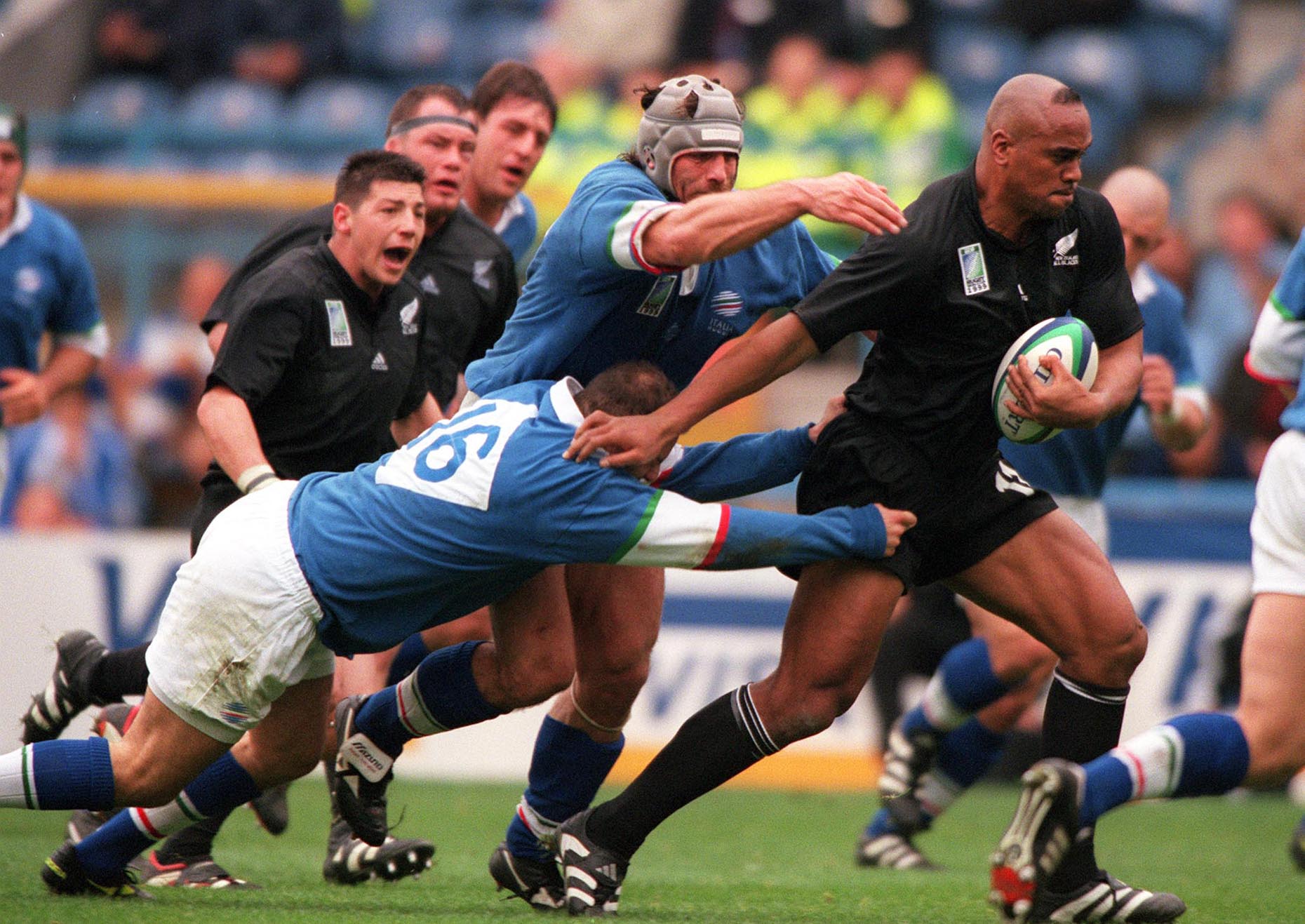
“To play against him was more stressful than you can imagine. Not just because one would need to tackle Jonah, which was not an inviting thought, but he drew defenders to him, which left other great players around him in space. Jonah’s presence changed defensive structures and strategies forever.”
Backing up his former teammate, ex-Saracens director of rugby and defensive specialist Brendan Venter adds: “I actually have a very distinct memory of him running over me, literally. I went low and he just bounced me.
“What made Jonah Lomu different was that he was big and he was fast, but he actually had wonderful evasive skills. That’s why he was so hard to play against.
“When you sat down to tackle him, he would run around you. That was exceptional. That’s what made him so feared and why he scored so many tries, because he had this ability to evade an opponent. It wasn’t just a brute force thing. He did change the game.”
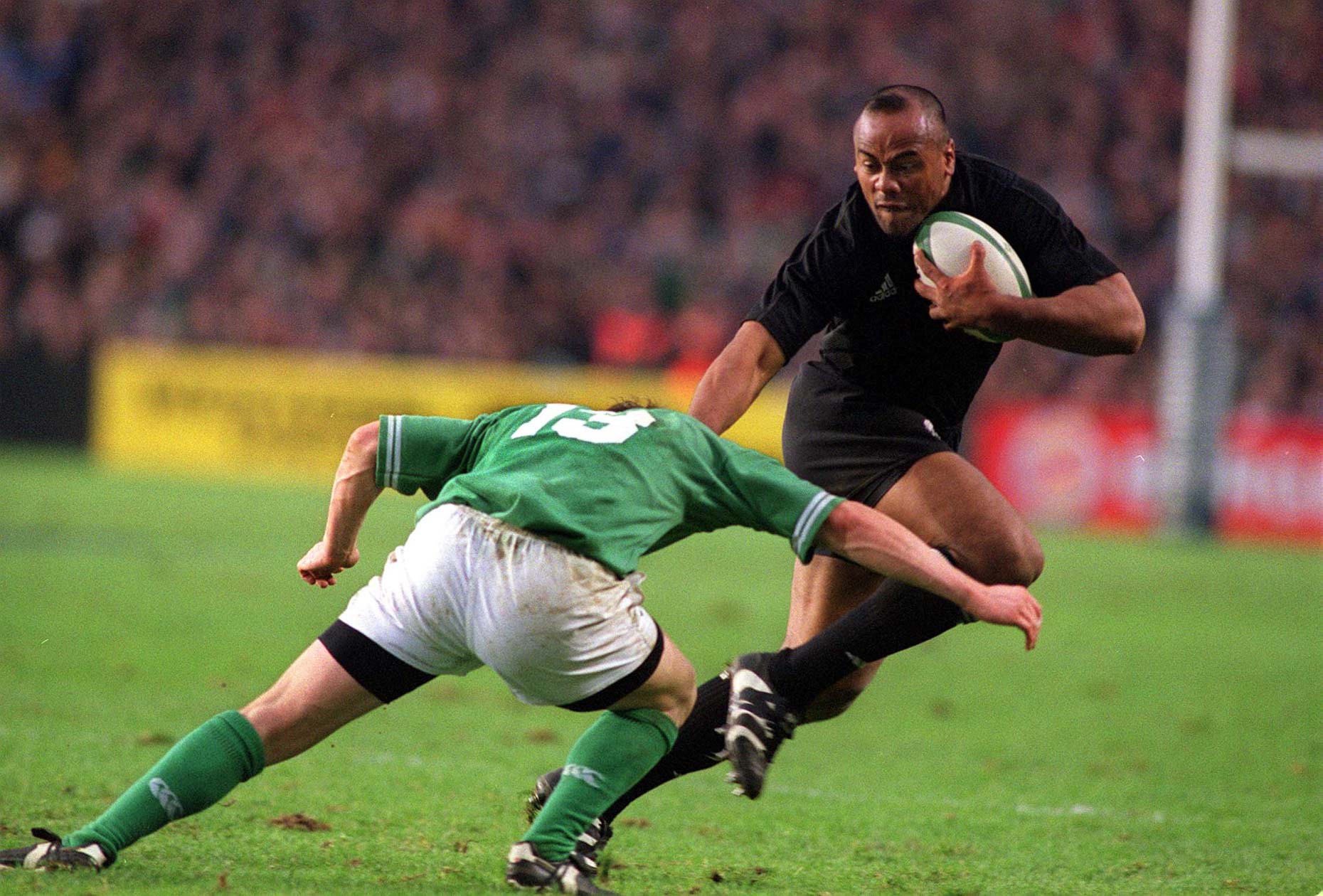
After 1995, there was a sense that Lomu had awoken passions for the sport, globally.
“He was probably the first player with this type of physicality, speed and power,” former France playmaker Fred Michalak tells CNN. “Rugby is what it is now because of him – his talent was recognised by everyone.”
Of course, Lomu was beloved at home, but what set him apart was that fans from Hong Kong to Huddersfield, Stellenbosch to Stirling all fell in love.
Current England defence coach John Mitchell was capped alongside Lomu and also coached him when he was the All Blacks boss.
“Jonah was, by a long way, the first truly iconic superstar of the game”
In an exclusive column for Rugby World magazine after the wing’s passing, Mitchell wrote: “I was fortunate to have played with and against Jonah and then, as coach, I selected him for New Zealand’s 2001 end-of-year tour and he was brilliant.
“Against Ireland, he made several of the strong in-to-out runs that he became so famous for. He broke the line often against Scotland and scored in a tough match against Argentina. I remember how fans would walk past someone like Richie McCaw and make a beeline for Jonah.”
A Polynesian star
Writer Hall explains that during their research, one of the things that kept coming up was Lomu’s willingness to make time for fans, signing countless autographs, posing for photos and chatting with strangers.
According to good friend Eric Rush, who delivered a eulogy at a public service for Lomu, the wing was so humble and so willing to give himself over to others.
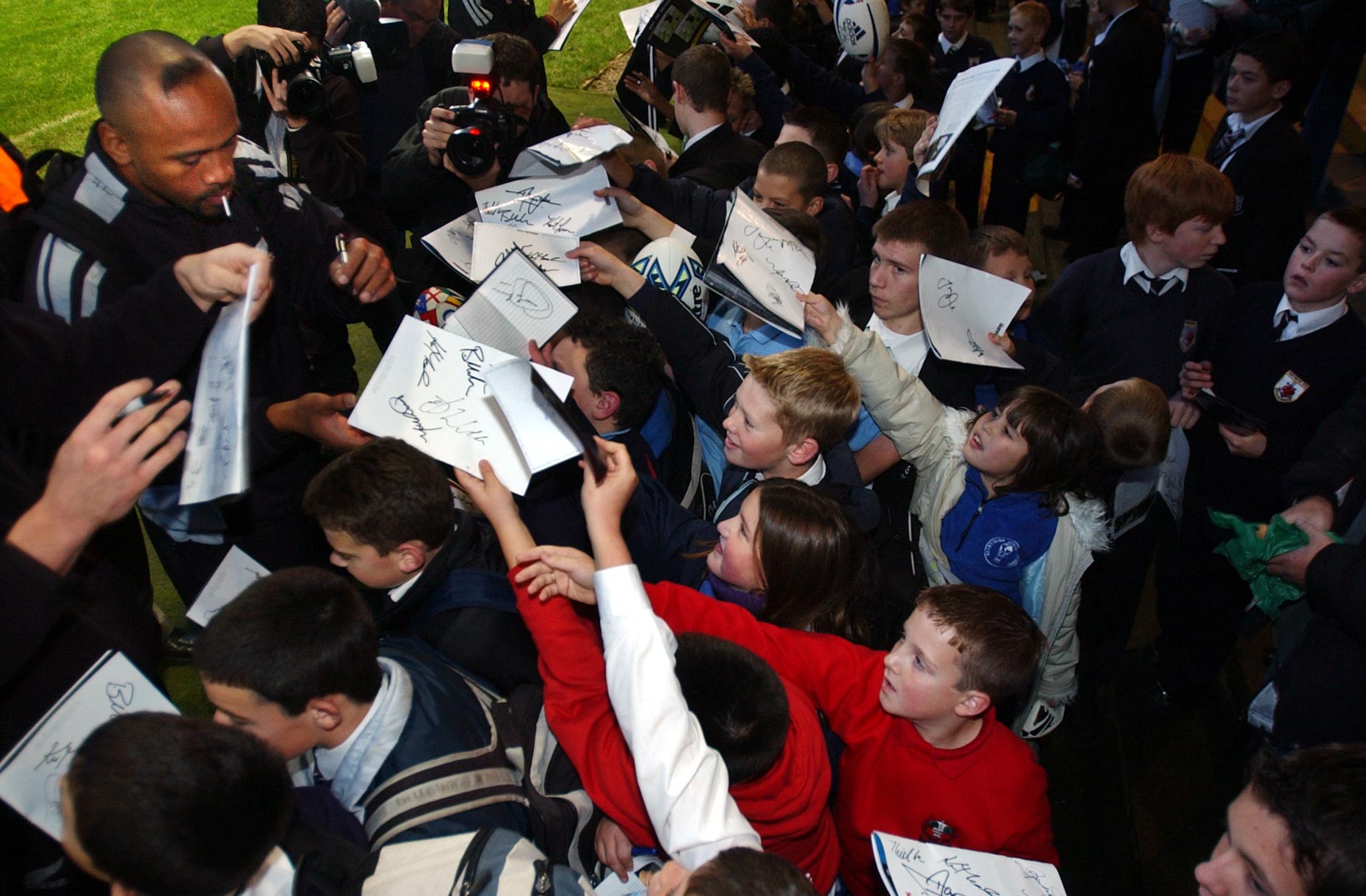
He had, Rush says, a typically respectful Polynesian approach.
The son of Tongan immigrants, Lomu was not just the first global sporting star, but according to some, an inspiration to those with Pacific Island heritage.
When he spoke to CNN recently, England No. 8 Billy Vunipola said of Lomu: “I’ve been in taxis before with people from the Middle East who I don’t think know anything about rugby.
“They tell me they don’t know anything about rugby, but they know about Jonah Lomu. That is testament to him and his name. He was truly the first global superstar rugby ever had, or probably ever will have.
“To have that legacy is an amazing thing. I’m proud he’s a Tongan guy, I’m proud I can say, ‘Yeah, his genes are Tongan, I’m Tongan too.’”
Vunipola isn’t the only one.
“He was the main reason why I would turn the TV on to watch rugby,” said Tonga’s record point-scorer at the Rugby World Cup, Kurt Morath.
“The fact he was a Tongan and came from such humble beginnings also made it even more special. Tongans and all Pacific Island nations are very proud of where they come from and Jonah definitely helped put Tonga on the map.”
“People tell me they don’t know anything about rugby, but they know about Jonah Lomu”
Lomu’s legacy
Has there been a name as celebrated as the All Blacks great since?
“The main reason we haven’t had a star as big as him is because so few people at international level could be so destructive,” Venter explains. “To put it into perspective, at the highest level everyone is good, but for someone at that level to be exceptional, you have to be exceptional.
“You keep coming through the ranks, you become a provincial player, you become an international, but very few can be unstoppable at international level. He was unstoppable.”
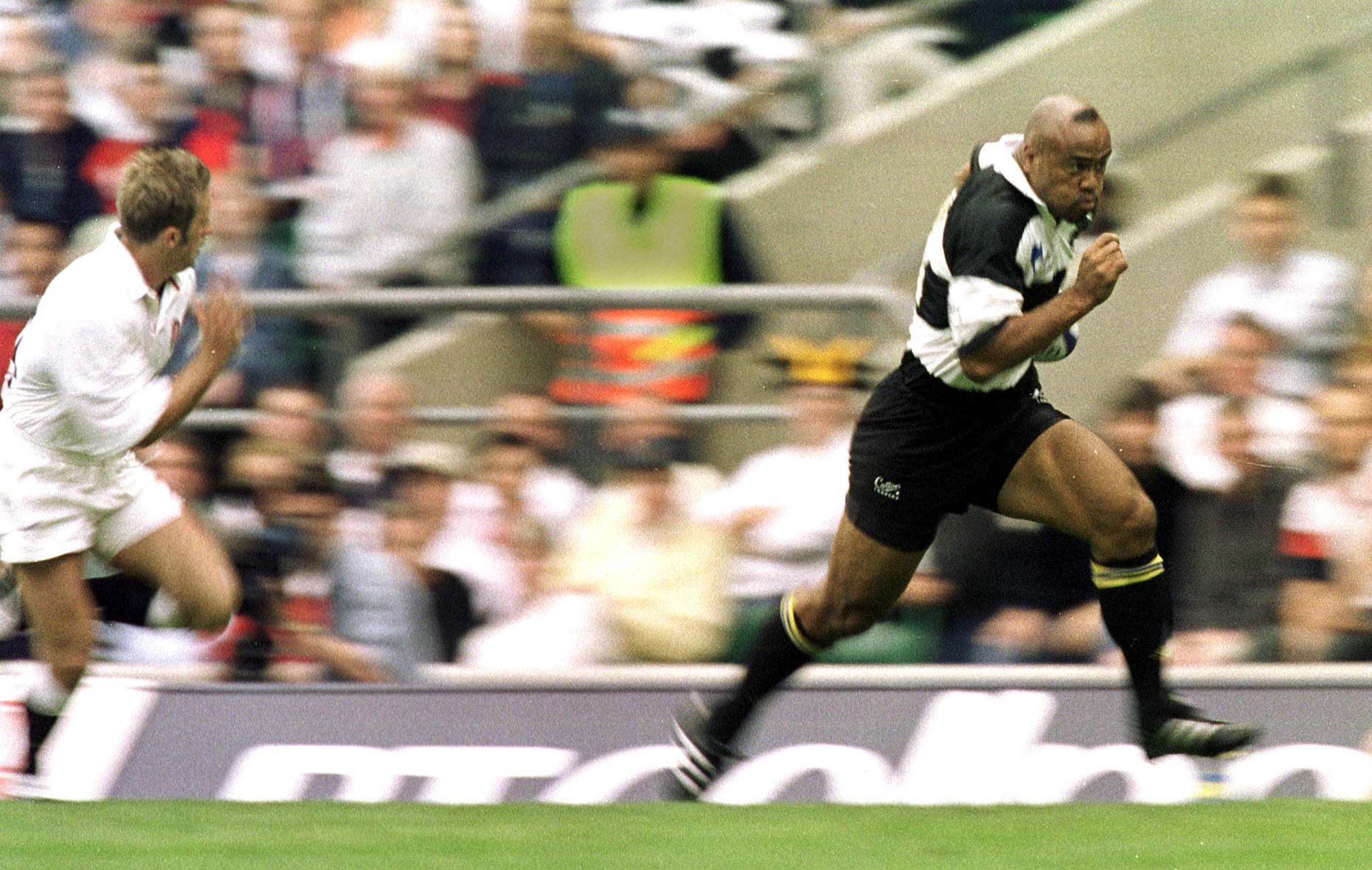
In his eulogy, Rush said as much in 2015.
“Jonah reached heights on the football field that had never been seen before, and you know it’s hard to imagine anybody reaching those heights ever again. I’m sure somebody’s going to come along one day, and it’s going to be a great sight to see, because the benchmark has been set pretty high.
“He was an inspiration to a whole generation of kids growing up in this country (New Zealand), and across the world. And not just in rugby either. I think there’s still another generation of Julian Saveas and Joseph Parkers and Manu Vatuvai, and Valerie and Stephen Adams.
“There’s a whole generation of kids still to be inspired by this guy. He was feared the world over, probably more so overseas than here in New Zealand … and the best part of this fella is that he did it all without the slightest hint of arrogance or ego.
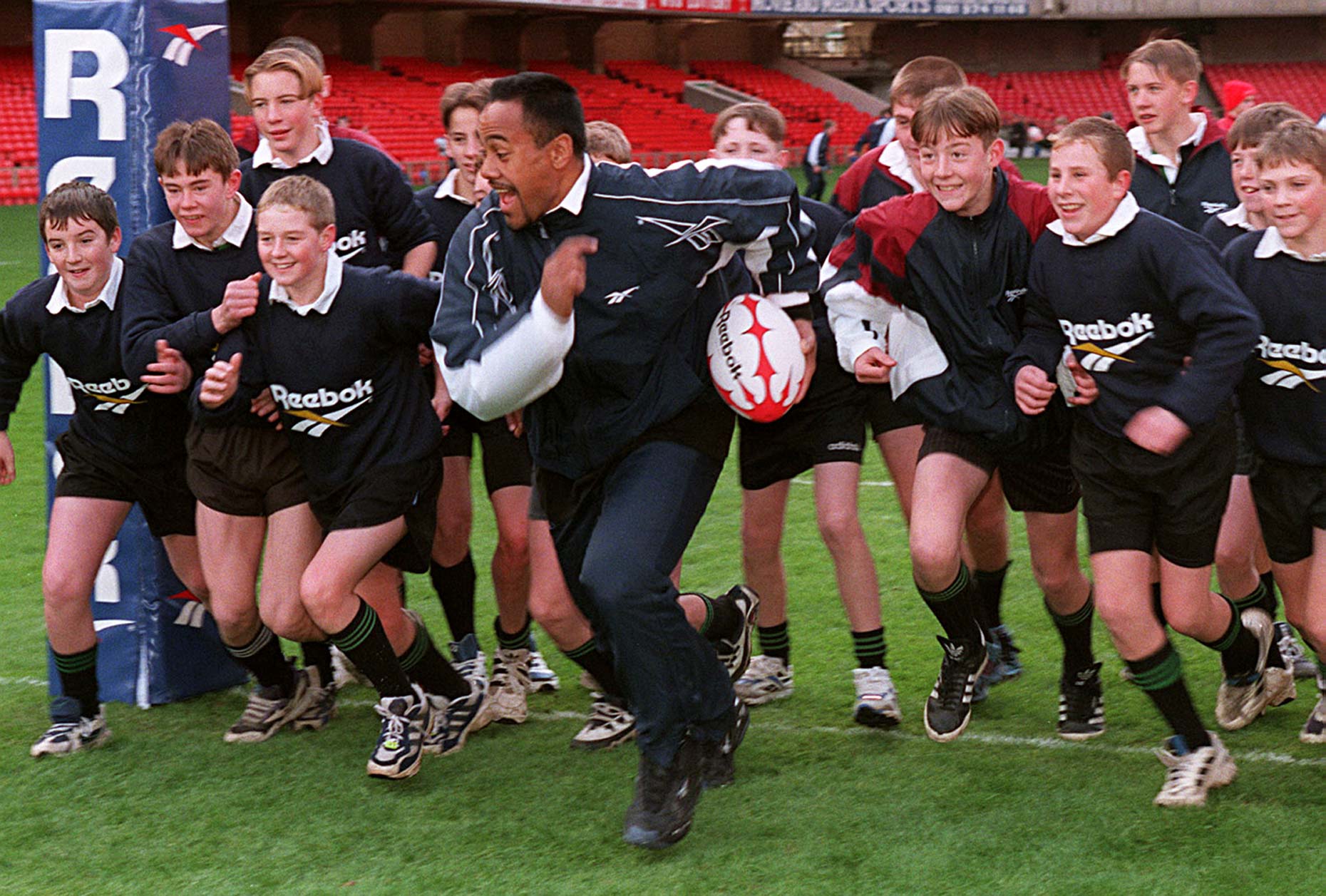
“When the Dallas Cowboys came knocking, he showed me that contract. It was a lot of money, and he turned it down.
“I said, ‘Why did you turn it down?’ He said, ‘Oh, it’s only money. It’s not everything.’ I said, ‘Money’s not everything, but it’s right up there with oxygen, bro, you do need it, you know? And that’s a lot of oxygen, brother. That’s a lot of oxygen.’
“All he said to me was, ‘I just want to play rugby with my mates, and I want to play in that black jersey for as long as I can.’ And that’s the reason he stayed with (rugby).
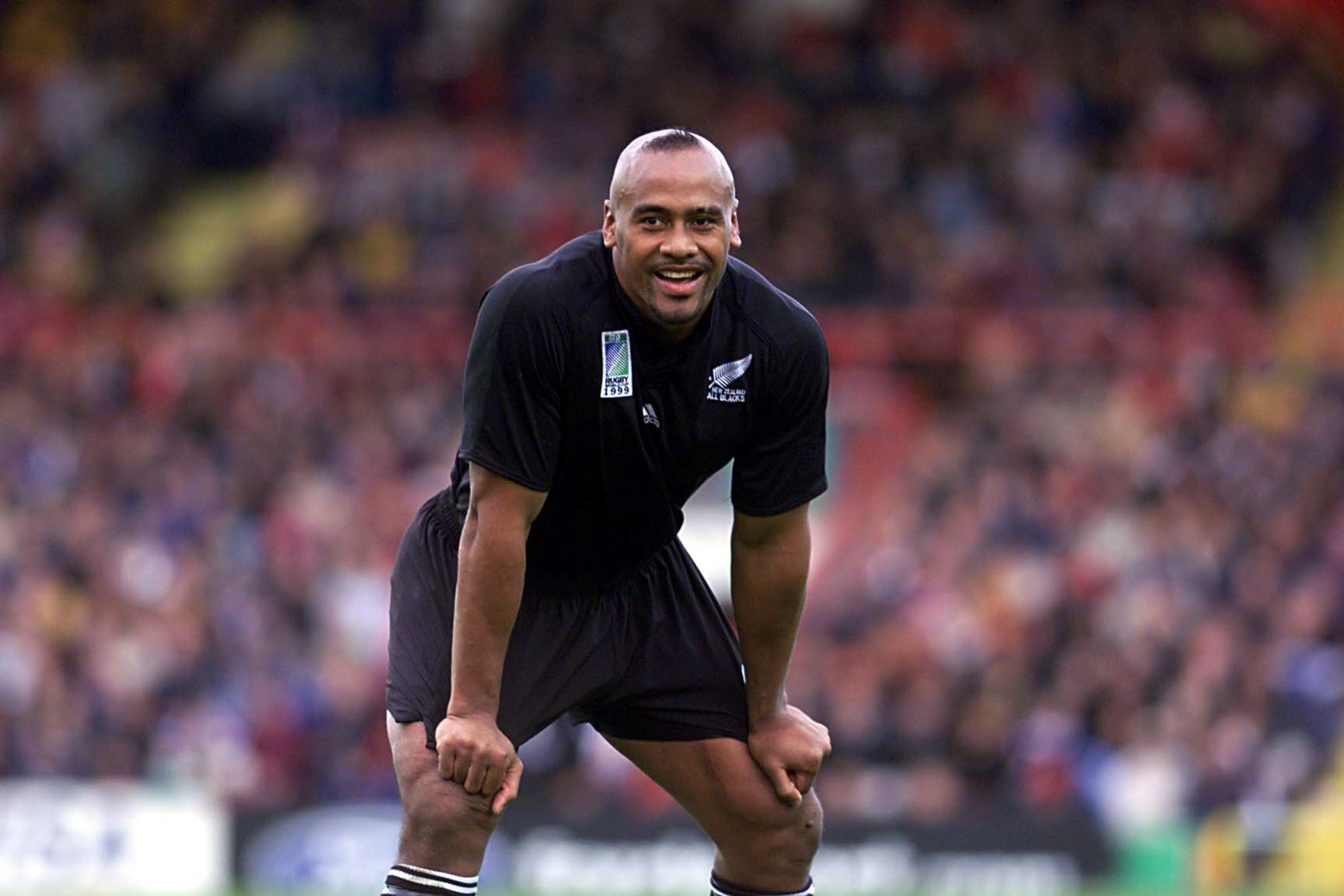
“He’s going to be remembered as a colossus on the field, no doubt about that. But I‘m going to remember him as a good mate. And most importantly, as a loving dad.”
As former foe Stranksy says in conclusion: “Jonah off the field was almost the complete opposite (of his terrifying on-field persona). Quiet and humble, reserved but gentlemanly, and when we did get to know the man later in life, a kind and charismatic character!”
While the game continues to look for the next Jonah Lomu perhaps the greatest legacy of the giant wing is how he treated people off the park, as well as the chaos he created on it.
On behalf of Nadene and the boys, thank you CNN for writing this Tribute to Jonah.
